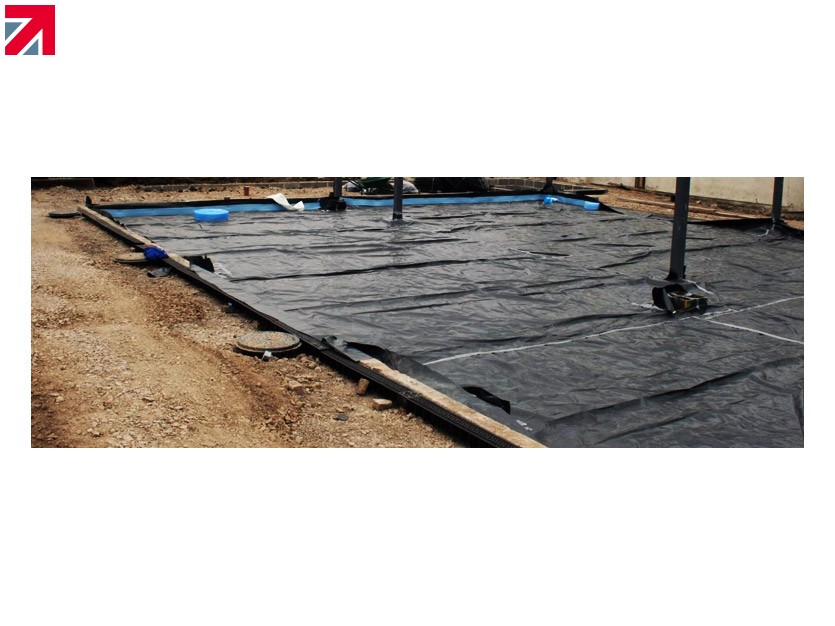IN the last of her series of four articles looking at commercial flooring solutions, Ecotile's Lucinda O'Reilly looks at the perennial problem of damp.
1. Damp and its causes.
Damp is a common problem in the UK in many types of buildings and comes in many forms such as condensation, rising damp, penetrating damp and hygroscopic damp. When dampness occurs in floors, issues such as insulation impairment, electrical damage and surface damage can occur. The use of highly permeable construction materials such as stone and lime-based mortars and renders which were in common use until the 20th century allowed moisture to travel through and be absorbed into the atmosphere. Problems arose when these materials were covered with new impermeable products such as linoleum, cement, gypsum-based materials and tiles which prevent the dispersion of the moisture causing it to collect just under the surface. These problems may manifest as cracks or expansion and warping of the top floor layer.
2. Checking for moisture in the substrate.
Moisture meters are widely available and will be essential when cleaning and restoring a property after floods as the moisture you can not see will often do the most damage if left undetected and treated.
Before bonding an impermeable floor covering to the substrate it is essential that a moisture test be carried out to ensure the base is sufficiently dry to receive the selected floor covering. It is advisable to use a digital hygrometer that indicates both relative humidity and air temperature.
If you suspect that your damp-proof course has failed we recommend that you contact a surveyor or a company specialising in damp problems to inspect your property.
3. Some types of damp protection that have been used in the construction of your property.
Incorporating some kind of damp proofing into buildings only became standard in the 1950s so it is possible that you do not have a damp-proof course or that it has deteriorated over time. Common damp-proofing techniques include;
Chemical damp-proof course – silicone-based liquid is injected in to the wall at no less than 150mm from the base to create a water-repelling layer.
Integral damp proof course – this technique involves adding materials to the concrete mix to make the concrete itself impermeable.
Membrane damp proof course – a damp proof membrane material such as polyethylene sheeting is placed beneath a concrete slab to prevent it absorbing moisture.
4. How easy is it to install a damp proof membrane?
These days there are some excellent products on the market that make the process of protecting your property from damp relatively quick and easy. If you’ve tested the base over which you want to lay an impermeable floor covering and found moisture in it that will prevent the adhesive from curing and may damage the floor once it’s laid, we recommend a product such as Stopgap F77.
5. Are there any other solutions?
An interlocking tile system floor covering allows moisture to evaporate through the joints so damp will never collect between the substrate and the tiles and you can save yourself a lot of time, money and hassle.
Read more about Ecotile Flooring Ltd on their Made in Britain profile page.
 Exports and marketing director Lucinda O’Reilly is an integral part of the team that has grown Ecotile Flooring into the successful manufacturing business it is today. Over the last 20 years, she has successfully employed her skills in sales and marketing to ensure Ecotile Flooring is recognised as the market-leading manufacturer of PVC interlocking floor tiles. Lucinda’s love of travel means the Ecotile brand is dominant all over Europe, North America, the Middle East, Asia and India.
Exports and marketing director Lucinda O’Reilly is an integral part of the team that has grown Ecotile Flooring into the successful manufacturing business it is today. Over the last 20 years, she has successfully employed her skills in sales and marketing to ensure Ecotile Flooring is recognised as the market-leading manufacturer of PVC interlocking floor tiles. Lucinda’s love of travel means the Ecotile brand is dominant all over Europe, North America, the Middle East, Asia and India.
To ensure compliance with export regulations Lucinda has gained accreditations from the Chamber of Commerce in Incoterms & Export Licence Controls and Export Procedures & Documentation and has completed the Institute of Export course on Incoterms 2020. She is a member of the Institute of Export, was a finalist in the Natwest Open to Export competition in 2018 and was instrumental in Ecotile Flooring winning a Queen’s Enterprise for International Trade in 2017. Lucinda has recently been interviewed by BBC News and Channel 4 News for her insights on Brexit and is an Export Champion for the Department for International Trade.
Find out more about Ecotile Flooring Ltd on their member profile page here
Member-created content 5 years ago | By Made in Britain
